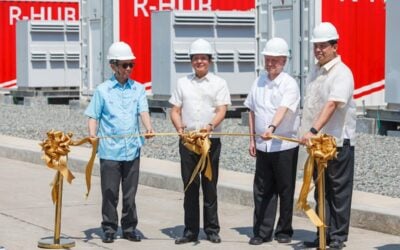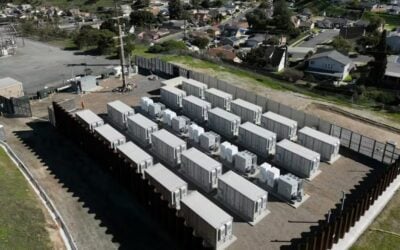Previous rules only allowed a limited ITC for energy storage when installed alongside wind or solar. Credit: Southern California Edison
US senators have introduced a new Bill for energy storage that brings in investment tax credits (ITC) for both grid-scale and residential energy storage systems.
The ‘Energy Storage Tax Incentive and Deployment Act’, a bipartisan bill co-sponsored by seven senators and introduced in Congress in late May, uses the current ITC for solar energy as its model in a bid to open up competitive storage markets.
For commercial applications of storage, under the new Bill, all energy storage technologies including batteries, flywheels, pumped hydro, thermal energy, compressed air, among others qualify for the ITC, but the system must have a storage capacity of at least 5kWh.
Previous rules only allowed a limited ITC for energy storage when installed alongside wind or solar, but the bill extends the ITC for all applications of storage including consumer-owned and on or off-grid.
Try Premium for just $1
- Full premium access for the first month at only $1
- Converts to an annual rate after 30 days unless cancelled
- Cancel anytime during the trial period
Premium Benefits
- Expert industry analysis and interviews
- Digital access to PV Tech Power journal
- Exclusive event discounts
Or get the full Premium subscription right away
Or continue reading this article for free
For residential applications of storage, the new bill only brings the ITC to battery storage specifically and eligible systems must have at least 3kWh capacity.
Matt Roberts, executive director of the Energy Storage Association, said: “Extending the ITC to energy storage is critical to accelerate transition to a flexible, efficient and resilient US electric grid. This legislation demonstrates there is bipartisan agreement that reducing tax burdens on innovators and opening new opportunities for utilities, businesses and households to invest in intelligent energy systems is an effective way to modernize our energy infrastructure and create a cleaner, more reliable electric grid.”
Cross-senate support
The bill garnered support from figures on both Democrat and Republican sides of the Senate.
Senator Martin Heinrich added: “This bipartisan bill will ensure federal policy supports the integration of emerging storage technologies into the our nation’s energy grid. Grid-scale energy storage will bolster system resilience during emergencies and outages, provide reliable supplemental services to the grid, and displace new investment in expensive substations and transmission lines.
“As generation and storage technologies improve and become less expensive in the coming years, economics will drive new electrical generation consistently in the direction of clean, pollution-free power.”
Senator Angus King said: “This ITC will play an important role in encouraging storage innovation, supporting the growth of the industry, and helping businesses and consumers alike as they take their energy future into their own hands by investing in renewable power.”
Last year, King and Heinrich also introduced legislation to set national targets for energy storage. King also introduced the Free Market Energy Act in order to establish a set of parameters for the governance of distributed energy resources, like storage, solar, and wind.





